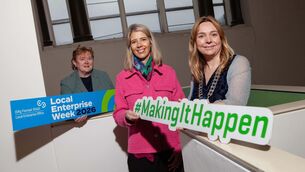Dr Michelle O'Driscoll: Minding your physical and mental health while trying to balance it all

The juggle is real. Picture: Stock
“HOW do you balance it all?” is a question frequently asked of many a busy parent, and one that I don’t think anybody really has the answer to. The truthful answer is usually “I don’t!” – as often for many it can feel like there is zero balance, minimal down-time, or little ease in the day-to-day chaos.
Dr Michelle O’Driscoll is a pharmacist, re searcher and founder of InTuition, a health and wellness education company. Her research lies in the area of mental health education, and through InTuition she delivers health promotion workshops to corporate and academic organi sations nationally.







 App?
App?


